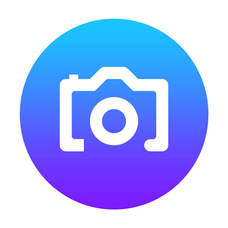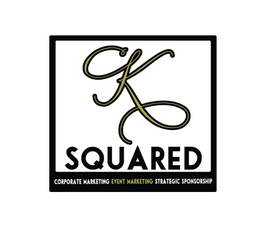|
It’s safe to say Facebook is having a crappy 2018. Endless scandals. Bountiful lawsuits. Congressional testimony. It’s hard to know if Facebook has hit bottom, and if they have, how they intend to claw out. This is where Facebook’s “Hard Questions” feature shines. Some top-level exec will provide answers to big issues facing the company and their billions of users. On Monday, it was Rob Goldman’s turn. He’s Face-book’s VP for Ads, and his question was a doozy: “What do Facebook advertisers know about me?” “To build a product that connects people across continents and cultures, we need to make sure everyone can afford it,” Goldman stated. “Advertising lets us keep Facebook free. But we aren’t blind to the challenges this model poses. It requires a steadfast commitment to privacy.” I have to admit a little skepticism. This is the same company that earlier this month sent millions of us a message saying that our information had been sucked up into the Cambridge Analytica vortex. Oh, and it happened two years ago. I’m a forgiving soul, so I slogged through his answers, looking for loopholes, hoping to learn something new about how advertisers are trying to connect with me. What I found actually opened me to the idea of maybe trusting Facebook again. Well not today, but some day. According to Goldman, there are a few ways advertisers can reach us. They take information from our use of Facebook (including age, gender, hometown, friends), and when we like posts or articles, they use that information to understand what might interest us in terms of products and services. Voila, ads! Next, advertisers will share information with Facebook about us (i.e., customer information) so that they can reach us. Advertisers might know our email addresses from a purchase or from some other non-Facebook data source. Lastly, there’s a ton of information that websites and apps send to Facebook about our use of their services. Some apps we use, for example, may utilize Facebook tools (e.g., such as using Facebook to login to the app) to make their ads more relevant to us and to evaluate the success of their ad campaigns. “For example, if an online retailer is using Facebook Pixel, they can ask Facebook to show ads to people who looked at a certain style of shoe or put a pair of shoes into their shopping cart,” Goldman said. “We do not tell advertisers who you are or sell your information to anyone. That has always been true. We think relevant advertising and privacy aren’t in conflict, and we’re committed to doing both well.” Only time will tell if we can hold Facebook to this promise and trust them again. If you want to manage what information advertisers know about you, go to “ad preferences” and edit what you’re willing to share.
0 Comments
 About a decade ago, while out with my then-3-year-old daughter, we stopped for ice cream in the late afternoon. I knew this was a mistake. There was a chance my wife was cooking dinner. I knew that by getting ice cream there was likely no way my kid would eat anything for dinner that night. So, I did what any rookie dad (and husband) would do in this situation. I told my daughter, “Don’t tell your mom we got ice cream. She might get mad.” “Okay Daddy. Our secret,” was my daughter’s reply. Whew, I thought. Crisis averted. Surely I could trust my daughter with this important information. Alas, as soon as we walked in the door, my beautiful daughter threw me under the bus by announcing our little secret side trip to Handel’s Ice Cream. Needless to say, I was in the doghouse for a few days after this. But I learned an important lesson: Don’t share secrets with people you can’t trust, including chatty 3-year-olds. Ten years later, I’ve slightly adjusted this personal rule to include the sharing of personal information on Facebook and other social media platforms. There. I did it. I compared trusting my toddler with a secret to sharing personal information on Facebook. Is it really any different? Don’t get me wrong. I occasionally share personal information on Facebook, Twitter, LinkedIn and other platforms that I probably shouldn’t. I know the risks. But I also know that I’m exchanging data (money) for access to their platform (service). As shocking is this may sound to some people, Facebook isn’t a free service. Although critics have bellowed from social media soapboxes about the risks of sharing too much information, few actually listened to the warnings. Those are the people who did not receive the little “thanks for playing” message from Facebook last week. That message, sent to some 80 million users, was Facebook’s attempt at an explanation and apology. Thinking our personal information is somehow safe online is as laughable as telling a toddler to keep quiet. No one expects the kid will keep the secret. If they do, they probably shouldn’t be on social media. I was one of the lucky Facebook suckers to receive the Cambridge Analytica message. Yes, I freely gave up personal data to play a game or complete some dumb quiz. Boom. Credibility blown. Time to follow my own advice. The bigger question is this: What will we do now that we know what we already knew? That’s a confusing question, but the answer is simple. We can continue to share information we hope will be kept private by people we don’t know and on machines we’ll never see for a service we think is “free,” or we can treat Facebook and other platforms like toddlers who can’t be trusted to keep a secret.  Apps that make me look like the world’s greatest photographer hold a special place in my heart, and on my smartphone. Instagram, Snapchat and other image sharing apps are good, but they rarely give me best-picture-ever quality newer smartphones are capable of. I want to take the kind of pictures one expects to see when, say, looking at an image in an issue of National Geographic. Before you say I should temper my expectations, meet Dayflash, a new app for enhancing your image sharing experiences. Developed with input from hundreds of content creators and image influencers, Dayflash offers a unique photo and video sharing service that complements traditional platforms like Instagram and Facebook. “We’ve had a passion for art and photography for a long time,” said Dayflash co-founder, Rupali Renjen. “It started out in the shortcomings we found with photo sharing apps as a whole. Then it became something more after we talked to lots of users of photo apps.” Although Dayflash is a social app, it won’t replace your favorite social media platforms. And that’s okay. It’s not supposed to. They’re merely trying to make your social media experience a bit better – for you and your followers. “We’re simply looking to introduce (an app) that could ignite public interest around great social and visual content on mobile,” Renjen added. So far, they’re generating a lot of interest. During their pre-launch phase, several thousand well-known Instagram influencers and others joined Dayflash. Many became active users. These power-users noted the sleekness and simplicity of the Dayflash interface. One aspect I noticed right away is that photos and videos looked sharper. This is because, by default, Dayflash displays your photos and videos in an immersive full-screen photo display format. Like other social apps, you can search for and follow new Dayflash accounts that interest you. When you’ve got a great content, you can share your full-screen photos and videos to Instagram, Twitter and Facebook. With so many similar image-sharing services, the question for Renjen and her team now becomes how to make Dayflash stand out in the crowded app marketplace. For one, those people who are running from Facebook in the wake of the Cambridge Analytica scandal might see Dayflash as a nice alternative. “We want a unique and immersive full-screen photo display format that can make many of our aesthetic photos look more beautiful and lifelike than ever before,” Renjen said. Dayflash is poised to help users reach new audiences and bring greater visibility to their Instagram accounts. “Instagram users have done a lot to build their accounts, so we’re also looking to help them build their Instagram presence, and to do so more quickly,” Renjen added. Dayflash is currently available on the iTunes App Store for iOS devices.  Kelsey Klim and Kollin Chupa of K Squared know something about the entertainment and event industry. If you don’t know their names, but you live in Northeast Ohio, you probably know their work. Before K Squared, they were known as the one-two punch for entertainment marketing inthe area, having worked with just about every live act to come to Youngstown for the last 10 years. From the Covelli Centre to Packard Music Hall to JAC Live, Klim and Chupa have worked with global and local companies, world-class entertainers like Elton John and Rod Stewart, and well-known shows like Disney On Ice and Cirque du Soleil. On a personal note, Klim and Chupa were part of my first class at YSU. As most teachers will tell you, keeping an eye on the growth of former students after graduation is akin to watching your own kids grow up. I interviewed the dynamic duo about K Squared and their recent partnership with DOYO Live, Youngstown’s digital marketing and interactive design conference. DOYO returns for its third year, August 1-2, 2018, in its new location: the DeYor Performing Arts Center. As graduates of our communication studies program, it’s clear that the twins learned how to leverage their skills and experiences with Eric Ryan Productions into face-paced, versatile careers. It’s also clear they’re determined to fix a problem they see in their industry: marketing jargon and “big business” practices have replaced personal attention, which ultimately leaves some clients feeling unsatisfied. K Squared wants to fix that problem. Q: You didn't take the typical path through college to learn about marketing. How did a communication degree prepare you for this career? A: We truly believe that the best approach to anything is to approach it from a holistic view. It’s a concept we’ve carried into our own business model. It wasn’t enough for us to sit in a classroom and learn about theories. We wanted a tangible way to put those theories into practice. We discovered that we had the resources accessible to us within our community and campus. We just had to look. At YSU, Campus Recreation and Student Programming had merged into a new department, and it was there that we discovered a passion for live events, event marketing, sponsorships, and corporate sales. We also met our former boss Eric Ryan during this time frame, which led to our eventual careers at the JAC Management Group. Suddenly all of the communication classroom lessons started to make sense in a much deeper way. Q: You've networked with a lot of names in the entertainment industry. How has that network helped you launch K Squared? A: Our previous experiences have absolutely paved the way for the foundation of K Squared. Not only did we gain a versatile skill set, we built many relationships that have extended into the launch of K Squared. Q: What are the advantages to having your business in Youngstown? A: The absolute best advantages to having our business in Youngstown, or any business for that matter, are the relationships. We are fortunate to live and work in a community where relationships still hold a very strong value and almost serve as a type of currency in a lot of circumstances. It could be a double-edge sword, but we’ve found that many clients and people within our network still have a very strong entrepreneurial spirit and recognize and support that same spirit in others. Q: I loved your FB Live session with Dennis (Schiraldi) for DOYO Live. Looks like you’re going to be pretty involved when DOYO returns this year in August. What are you looking forward to most about the 2018 Conference? A: First of all, we are thankful for the partnership and sense of collaboration and community Dennis has cultivated within the business and marketing community. We’ve founded our business model on the mantra of “collaboration breeds creativity”, so it was a natural fit when we began working with Dennis on event and corporate sponsorships. We’re excited to inject our knowledge of sponsorships into this year’s conference because it marries a lot of our passions and business foundations: events, sponsorship, and marketing. Above all else, we’re excited that the conference has grown each year and even more excited to be part of that growth this year. To learn more about K Squared, check out http://www.ksquared.marketing and look for them on Facebook. For more on DOYO Live, including dates, tickets and schedule of speaker, check out http://www.doyolive.com. You’ll also find some great links to live video on DOYO’s Facebook page. |
AuthorDr. Adam C. Earnheardt is special assistant to the provost and professor of communication in the department of communication at Youngstown State University in Youngstown, OH, USA where he also directs the graduate program in professional communication. He researches and writes on a variety of topics including communication technologies, relationships, and sports (with an emphasis on fandom). His work has appeared in Mahoning Matters as well as The Vindicator and Tribune-Chronicle newspapers. CategoriesArchives
July 2023
|
 RSS Feed
RSS Feed